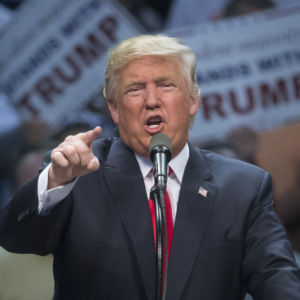Warning: The political news you are consuming may be synthetic, manufactured in a corporation and served up breathlessly by the media. Like many synthetic substances, it could be bad for your health.
I refer, of course, to the epidemic of polling. Polls have become a political narcotic. There is an appetite for them that knows no bounds. If you do not like or trust one poll, take another.
This, in turn, reflects a time when the science of polling faces challenges. Polling had become fearsomely accurate, but recently it has encountered two bugaboos: Changing demographics and changing telephone usage. These things have cleft polling in two: polls that are conducted through telephone interviews and those that are conducted electronically.
The evidence is that the old way remains more accurate, but it is bedeviled with fewer land lines and more people who do not want to be interviewed, or may not be comfortable speaking English.
It is, I am told, cheaper to poll electronically, but the bugs are not all out of the system and wide discrepancies in results are showing up. Hence, a poll that shows Hillary Clinton beating Donald Trump in the general election is followed by another equally reputable poll that shows Trump defeating Hillary.
The pollsters I have known are a canny lot, and I have no doubt they will get on top of these problems. The most egg that has landed on the face of the polling industry was in getting the last British election so wrong. That fiasco is informing the doubt surrounding polls on whether or not Britain should leave the European Union. They are struggling with a close call and public distrust of polling.
In the United States, polling has gotten the presidential primaries more or less right. But the putative contest between Clinton and Trump has wide swings in polling results; so wide that the pollsters themselves are having difficulty asking the right questions and managing the results.
Not since 1945, when it started seriously, has polling seemed so challenged as in this presidential contest.
But unreliable or not, the debate is fashioned by the polls. Talk radio, talk television and the newspapers are nourished by the latest polls, which pass as news.
For me the argument is not whether the polls are accurate, but rather the damage they do to the system. They are — and I am assuming the pollsters will regain their former omnipotence — an impediment to the political process.
A poll is a snapshot that morphs into a narrative. A second in time becomes a reality, and candidacies are extinguished before they can catch fire.
Commentators extrapolate a grain of truth into a mountain of fact.
Polling has reached a point where not only is it part of the democratic process, but it also distorts that process, picking winners and losers before the electorate has assimilated the facts.
The news media have fallen onto the habit of taking this synthetic news — a suspect commodity for which the great news organizations pay — as the real thing. A poll gets the same weight as the ballot, thus affecting the ballot.
I believe that polls do reveal a truth, but a truth of one brief moment in time. The trouble is that revelation becomes the revealed truth, and the future gets tethered to that moment. Normal evolution in political thinking is hampered by this synthetic truth.
In hiring pollsters, news organizations are unwittingly setting up what is the equivalent of a posed photograph: a photograph that will be reprinted hundreds of thousands, if not millions, of times until it has become a kind of truth and its dubious genesis is forgotten.
Politicians are swayed by polls, fitting their policies to synthetic truths that have been certified as the will of the people: erroneous certifications, as it happens.

